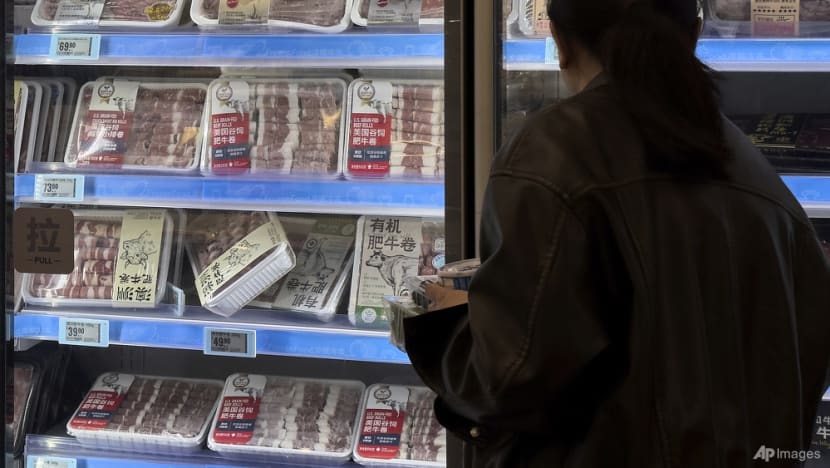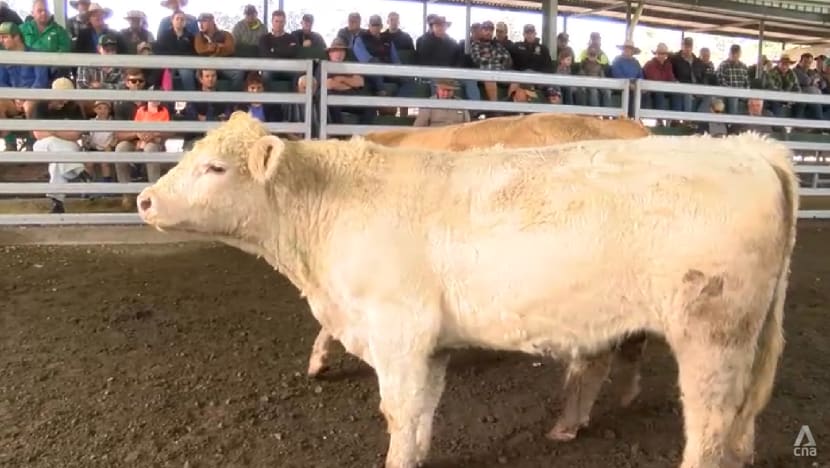Chinese demand fuels surge in Australian beef exports amid global trade uncertainties
The spike comes as China's beef imports from the United States have been disrupted.


This audio is generated by an AI tool.
RUTHERFORD, New South Wales: Australian beef exports climbed to near-record levels last month, bolstered by increased demand from China amid global trade uncertainties.
Last month, Australia exported more than 127,000 tonnes of beef. This is close to the highest-ever monthly total, which was 130,000 tonnes recorded for October 2024 beef exports.
China is currently Australia's second largest beef export market after the United States.
The bumper month comes as the US’ beef exports to China have been disrupted, but observers told CNA that it is too early to attribute the recent uplift in exports to US President Donald Trump’s tariffs.
Some believe the surge in exports was due to record supply.
“In the short term anyway, it opens up a US$2.5 billion gap which Australians are primed to take advantage of. And the reality is we've already seen exports to China up 40 per cent just this year,” said Roger Montgomery, founder and chairman of Montgomery Investment Management.
STRONG LIVESTOCK SALES
2025 is looking to be the biggest year on record for Australia’s cattle industry, with China likely to source any shortfall in its prime beef supplies from the country.
Meanwhile, the popularity of Australian beef is being felt in livestock markets across the nation, including in the small rural community of Rutherford.
Local stock agent Tony Bowe, who has been selling livestock most of his life, recognises the importance of these sales.
He said he believes the current volatility triggered by the Trump tariffs and the possible repercussions bode well for the Australian market.
“Those uncertainties in the world are definitely going to help our industry,” said Bowe.
“I think going forward in 12 months’ time, we'll see a very big lift in the cattle market and the livestock industry in Australia.”
Compared to industrial-scale saleyards across Australia, the Rutherford market is small but it plays a vital role in the livestock supply chain.
Many of the cattle there are bought for the long-term because of their size.
“There's always a bargain to be had by buying an animal that nobody else wants for whatever reason,” said cattle farmer and buyer Stephen Low.
“But they're good quality cattle here and the prices are not as much as I would have found here last month.”

MEETING RISING DEMAND
Younger cattle are purchased for fattening to be sold and exported at a later date. Much of it will be to China and other Asian countries if the trade uncertainties continue.
Cattle farmer and buyer Dave Payne said that the current trade volatility will help create more opportunities to export products to China, South Korea and Japan.
Australian livestock is subject to high standards of biosecurity, contributing to sustained buyer confidence.
But observers said there are many other factors at play.
“Prices could go up if volumes don't meet that demand,” said Montgomery.
“But we've got to remember it's a competitive market. The US could come back and Brazil's always there ensuring that we have to innovate.”


















